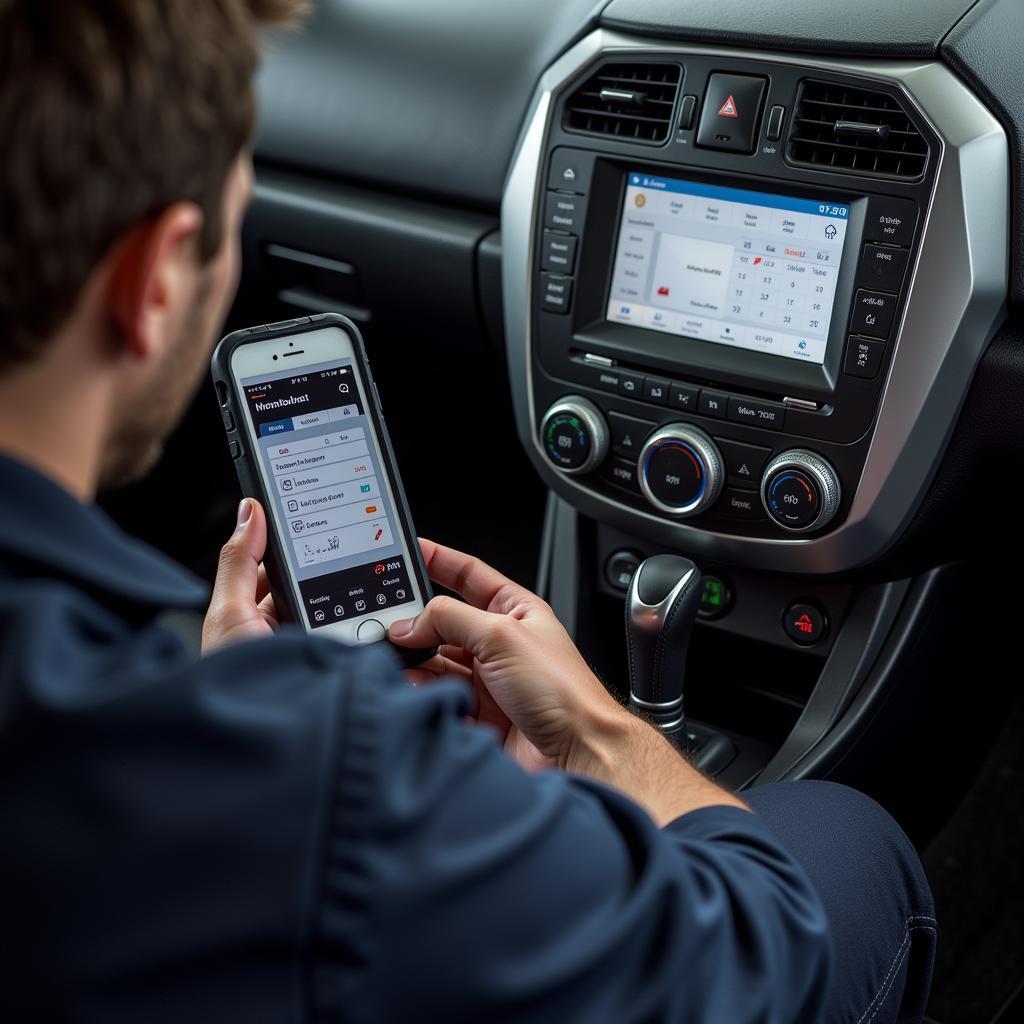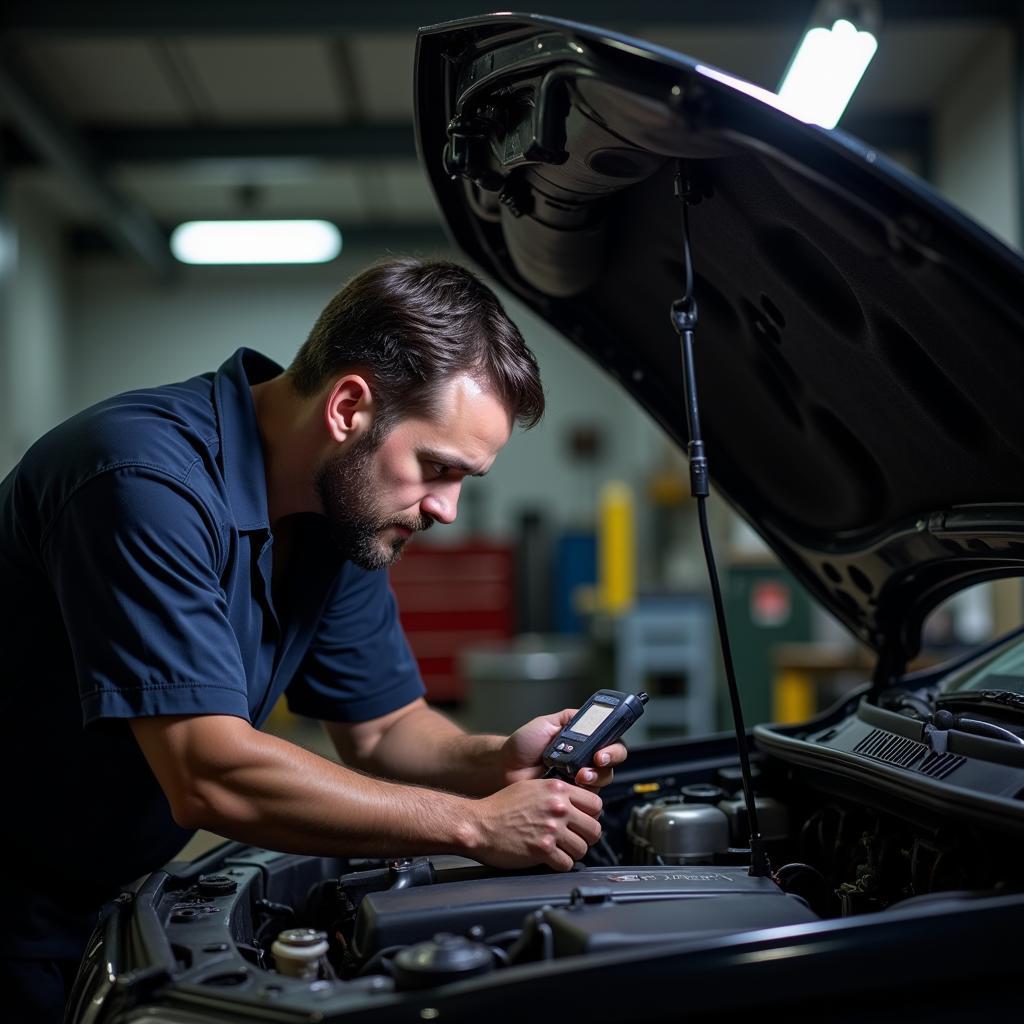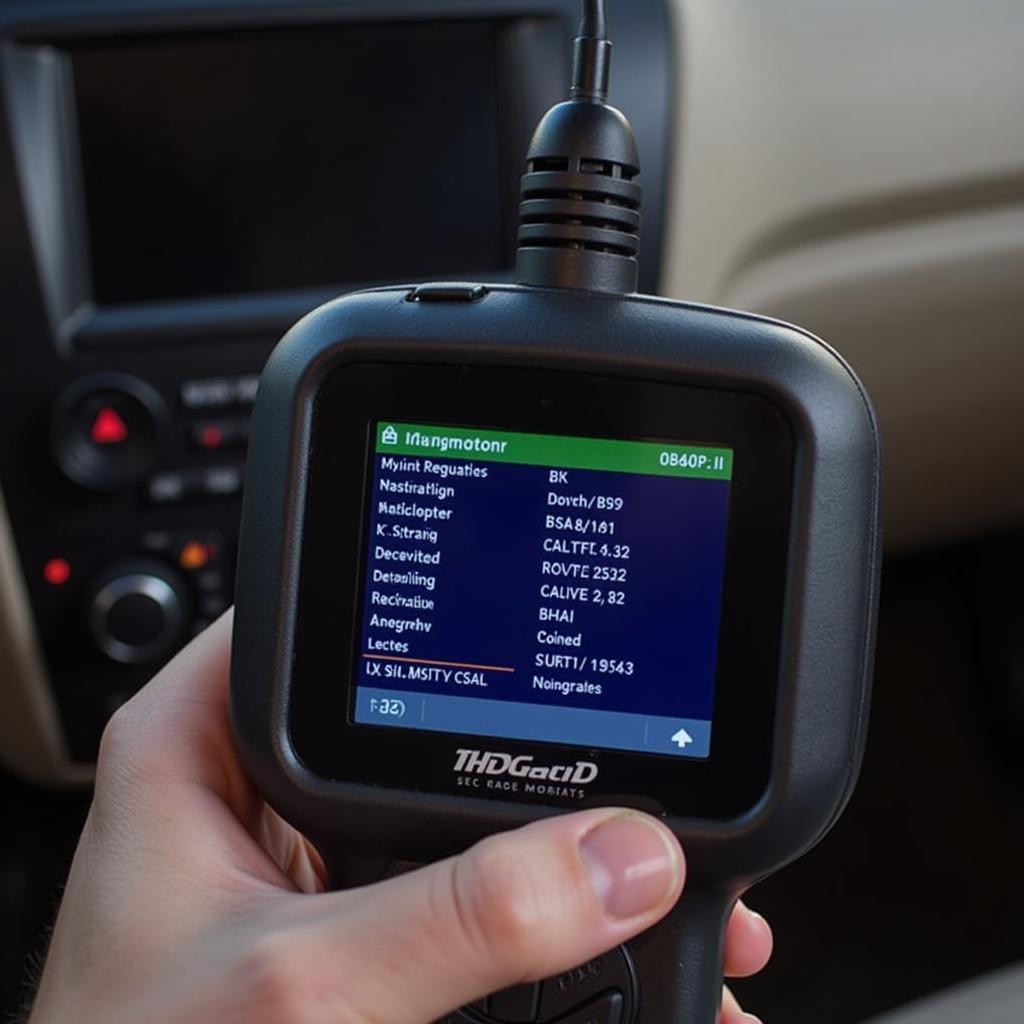Finding out what’s wrong with your car can be stressful, especially when warning lights flash ominously on your dashboard. “Where To Get Diagnostics For Car” becomes a crucial question, leading you on a search for reliable and accurate solutions. Don’t worry, this guide will walk you through all your options, ensuring you get the right diagnosis at the right price.
Understanding Your Car Diagnostic Needs
Before diving into where to get your car diagnosed, it’s helpful to understand what car diagnostics actually involve. Modern vehicles are equipped with onboard computers that monitor various systems. When a problem arises, the computer stores a Diagnostic Trouble Code (DTC) in its memory.
Car diagnostics involve retrieving these codes and deciphering their meaning to identify the root of the problem. This can range from minor issues like a loose gas cap to more complex problems within the engine or transmission.
 Car Diagnostic Equipment
Car Diagnostic Equipment
Where to Get Diagnostics for Car: Exploring Your Options
Now, let’s explore the different places where you can get your car diagnosed:
1. Dealerships
Dealerships specializing in your car’s make often have advanced diagnostic equipment and technicians trained specifically for your vehicle’s systems. This can be beneficial for newer models with complex technology.
Pros:
- Specialized knowledge and equipment
- Access to original manufacturer parts
Cons:
- Can be significantly more expensive
- May require appointments booked well in advance
2. Independent Mechanics
Independent mechanics are a popular choice for many car owners. They often have a wealth of experience with various car makes and models, and their services tend to be more affordable than dealerships.
Pros:
- Often more affordable than dealerships
- Usually offer quicker turnaround times
- Can build a personal relationship with a trusted mechanic
Cons:
- May not have specialized equipment for all car makes and models
 Mechanic Inspecting a Car’s Engine Bay
Mechanic Inspecting a Car’s Engine Bay
3. Auto Parts Stores
Many auto parts stores offer free or low-cost basic diagnostic code reading as a way to attract customers. While this can be a convenient option for simple issues, keep in mind that they may not have the expertise to interpret complex codes or diagnose the problem fully.
Pros:
- Convenient and often free or low-cost for basic code reading
Cons:
- Limited diagnostic capabilities
- Primarily focused on selling parts, not in-depth diagnostics
4. DIY Diagnostics with OBD2 Scanners
If you’re technically inclined and want to try diagnosing your car yourself, you can purchase an OBD2 scanner. These handheld devices plug into your car’s OBD2 port and can retrieve and display DTCs.
Pros:
- Gives you control and insight into your car’s health
- Can save money on diagnostic fees
- Empowers you to research and potentially fix simple issues yourself
Cons:
- Requires some technical knowledge to interpret codes accurately
- May not be suitable for complex diagnostic tasks
 Using an OBD2 Scanner
Using an OBD2 Scanner
Factors to Consider When Choosing Where to Get Diagnostics for Car
When deciding where to take your car, consider these factors:
- Complexity of the issue: For serious or recurring problems, a dealership or trusted independent mechanic is recommended.
- Your budget: If you’re on a tight budget, independent mechanics or DIY options may be more suitable.
- Urgency: If the issue is affecting your car’s drivability, prioritize a location that can see you quickly.
- Trust and Reputation: Seek recommendations from friends, family, or online reviews to find reputable service providers.
Conclusion
Knowing “where to get diagnostics for car” can save you time, money, and unnecessary stress. By understanding your options and considering your individual needs, you can confidently choose the best solution for a quick and accurate diagnosis. Remember, early detection and repair are crucial for maintaining your car’s health and preventing more costly problems down the road. If you’re unsure about performing your own diagnostics, how to learn car diagnostic is a great resource for beginners. And if you’re curious about the costs involved, you can find detailed information on how much cost car diagnostic.
FAQs
1. What is a DTC on car diagnostics?
DTC stands for Diagnostic Trouble Code. These are codes stored in your car’s computer system when it detects a malfunction. You can learn more about DTCs and their meaning in our comprehensive guide: what is a dtc on car diagnostics.
2. Can I drive my car with the check engine light on?
It depends on the severity. While a loose gas cap can trigger the light, other issues might affect drivability. It’s best to get it checked as soon as possible. Find out where can i get my car on diagnostics near you.
3. How often should I get my car’s diagnostics checked?
It’s good practice to get your car’s diagnostics checked annually or as part of your regular maintenance schedule.
4. Can I reset my car’s check engine light myself?
Yes, you can temporarily reset the light using an OBD2 scanner. However, this doesn’t fix the underlying problem.
5. Is starting a car diagnostic business a good idea?
With the increasing reliance on technology in vehicles, starting a car diagnostic business can be lucrative. Learn more about how to start a car diagnostic business.
We’re here to help you navigate the world of car diagnostics. Contact us via WhatsApp: +1(641)206-8880 or Email: [email protected] for 24/7 expert support.

Leave a Reply